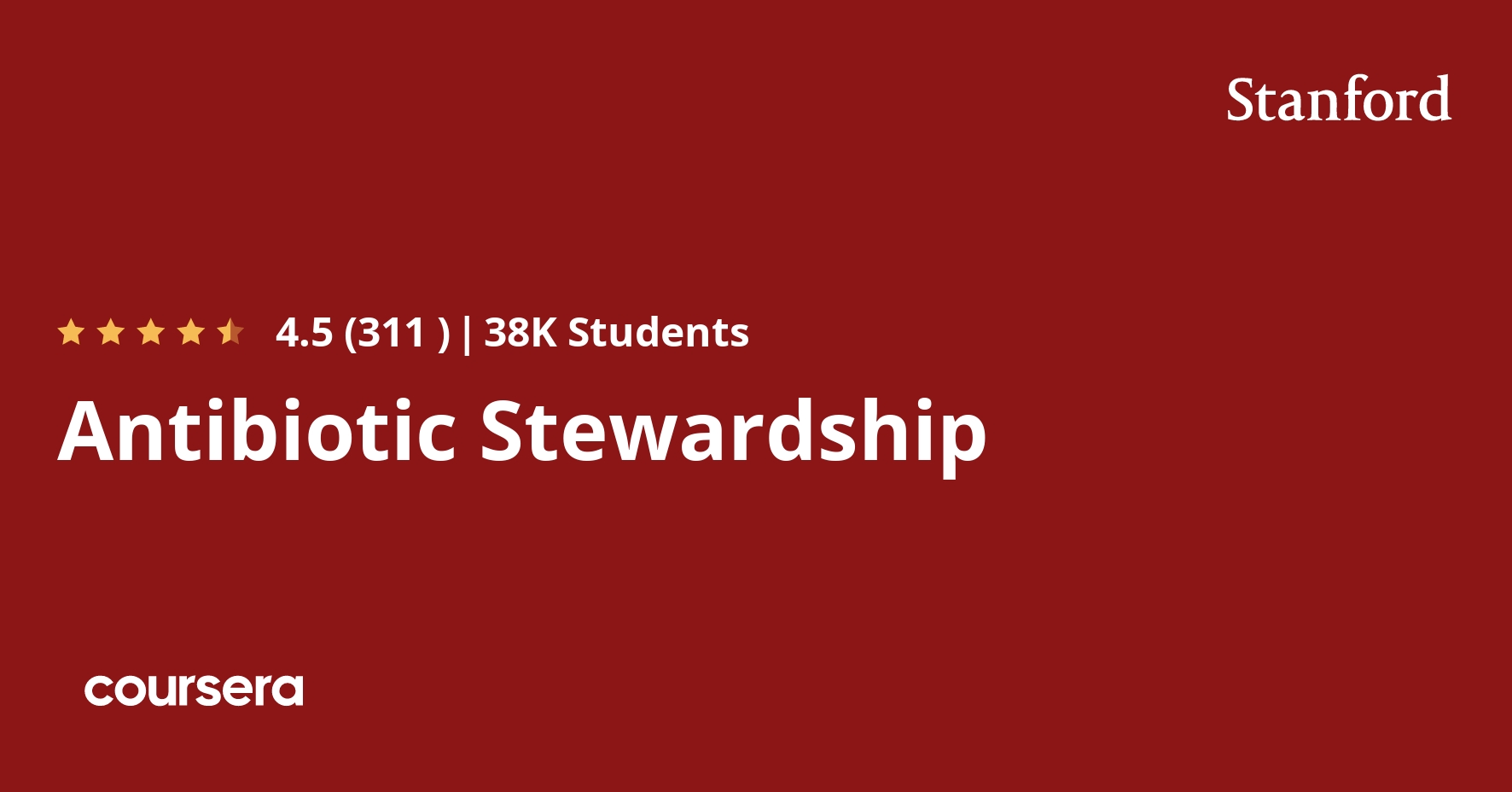Description
Antimicrobial Stewardship: Improving Clinical Outcomes by Optimization of Antibiotic Practices
Internet Enduring Material Sponsored by: Stanford University School of Medicine
Presented by: The Division of Infectious Diseases and Geographic Medicine at Stanford University School of Medicine
NOTE: These videos were produced as part of a free online course offered by the Stanford Center for Continuing Medical Education (SCCME). If you wish to receive credit for your participation in the course, you will need to complete the full course on the SCCME website at: http://cme.stanford.edu/online. The course version on Coursera does not offer CME credit.
Course Description
Antibiotics are among the most frequently prescribed classes of drugs and it is estimated that approximately 50% of antibiotic use, in both the outpatient and inpatient settings, is inappropriate. At the same time, in contrast to any other class of drugs, every antibiotic use has a potential public health consequence – inappropriate use may not harm only the individual patient, but contributes to societal harm by exerting an unnecessary selective pressure that may lead to antibiotic resistance among bacteria. This video based course will introduce learners to the basic principles of appropriate antibiotic use, demonstrate how to apply these principles to the management of common infections, and outline how to develop and maintain an antimicrobial stewardship program. We will offer a number of illustrative cases, recognizable to the practicing physician in his or her practice to engage learners in the thought processes that lead to optimal decision making, improved outcomes of individual patients, and harm reduction vis-a-vis the bacterial ecology. The course will also explore strategies to implement principles of antimicrobial stewardship both in your practice and also at a program level.




